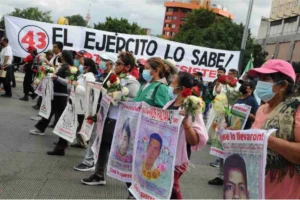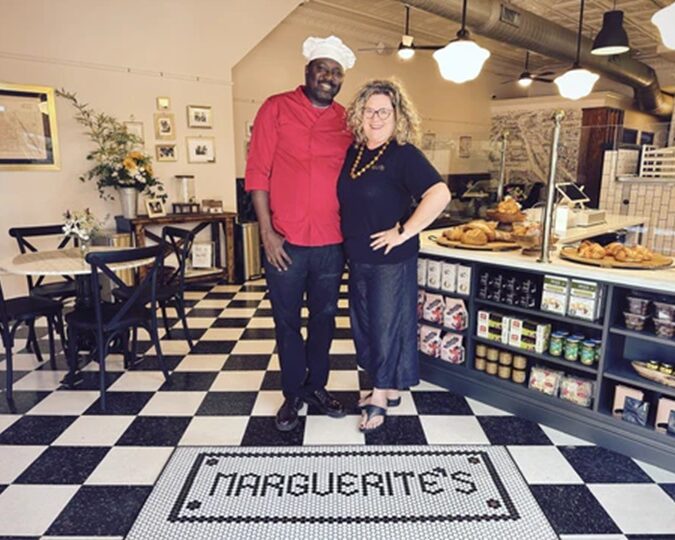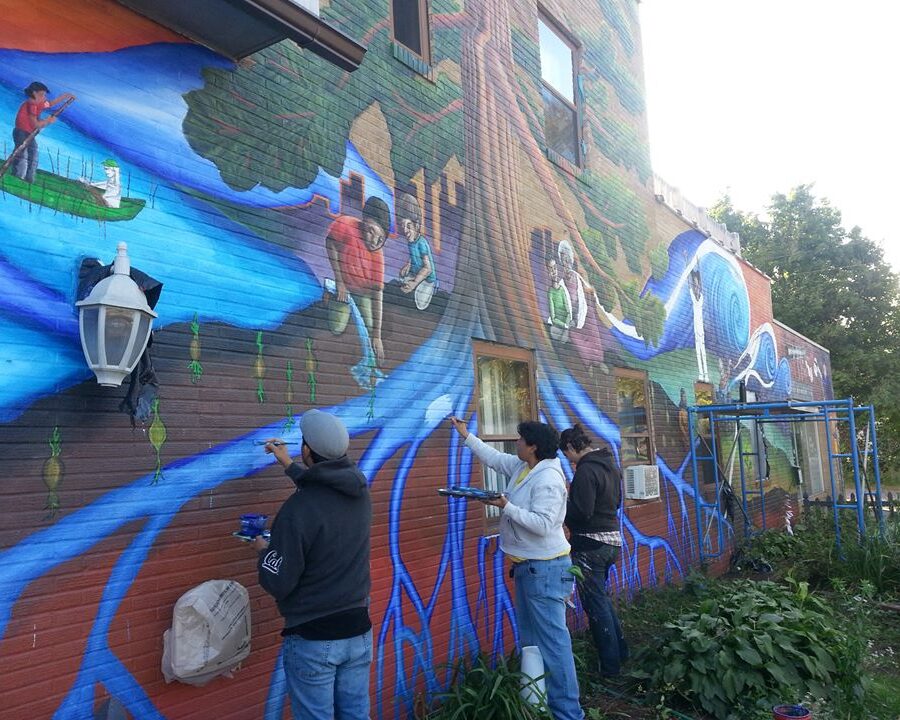BY JOHNNY HAZARD
“The government needs to decide if it’s on the side of the army or on the side of the truth.” – Parent of one of the disappeared students
Sept. 26 marks the ninth anniversary of the forced disappearance of 43 education students of the Escuela Normal Raúl Burgos in the pueblo of Ayotzinapa in Tixtla, Guerrero, in the south of Mexico. These nine years represent the majority of the terms of two presidents: Enrique Peña Nieto and Andrés Manuel López Obrador (AMLO), whose relationship with the “institution” of the department of defense has led him to perpetuate the lack of transparency. López Obrador will leave office in a year, just before the tenth anniversary of the atrocity. What will he have to show for it? Two months after the atrocity, the Organization of American States (OAS) formed the Grupo Interdisciplinario de Expertas y Expertos Independientes (GIEI) to provide assistance to the families of the students and to organizations and agencies that were investigating. The GIEI consisted originally of five people: Latin American lawyers, psychologists and human rights experts who had worked on cases of forced disappearance, torture and other political crimes. As the years wore on and government cooperation was not forthcoming, three members abandoned the work and denounced that there were no conditions for continuing. The last two members, Angela Buitrago and Carlos Beristain, issued their final report on July 25 and said they were leaving Mexico but not abandoning the effort. Buitrago said in an interview with Blanche Petrich of the newspaper La Jornada that after having investigated military crimes in Colombia, she was surprised to find in Mexico a taboo against giving prosecutors access to military records. “Let us remember that at the beginning local police, mayors, and organized crime were blamed for everything, but … we realized that there were other actors,” Buitrago said. “We began to see that what the department of defense affirmed was different from the forensically-demonstrated reality.” Beristain and Buitrago summed up the problem for their work: “The GIEI was the object of a fierce campaign of violence and defamation in various media. When the truth was uncomfortable, the order of the day became to shoot the messengers and silence us.”
On July 28, a few days after the GIEI issued its final report, a reporter said that “taking advantage of the presence of the secretaries of the army and the navy” at the daily presidential press conference, he wanted to “ask their position in the face of these allegations.” When López Obrador himself began to answer, the reporter repeated that he wanted the response of the secretaries. “No, no,” responded the president. “I’m going to give it because I’m the commander in chief” and because the allegations “are not true. It’s a campaign to debilitate the armed forces. … There is a tendency to blame the institutions, in this case the army, without proof.”
Proof is not lacking, and there would be more if military authorities cooperated.
In the immediate aftermath of the disappearances, students and supporters commandeered a Coca-Cola truck and crashed through the door of Military Camp #35, where some of the disappeared students’ cell phones had last indicated their location. This was obviously an attempt to find the students before much time had elapsed and in the face of zero interest on the part of any government agency in resolving the case. Last year during the week of the anniversary of the incident, students again used a Coca-Cola truck to crash the gate and to drive home what has been their slogan during all of this time: “Fue el estado” (“it was the state”). AMLO has often repeated the myth that the Mexican army emanates from the revolution and is therefore above reproach. In fact, the army of dictator Porfirio Díaz was not disbanded by Francisco Madero, the first (moderately) revolutionary president and AMLO’s hero. Madero, in fact, did not even remove the dictator’s top officers, which partly explains why he was ousted in a coup, tortured and murdered by those officers. Of course, AMLO thinks that having the army on his side, whatever the price in terms of justice and human rights, is the best form of anti-coup insurance.
Gen. Rafael Hernández, one of only two generals jailed for the atrocity, was released on bail by a judge who considered that the risk of his jumping bail was slight. Hernández was the commander of the military base in Iguala where the students are believed to have been held at least briefly.
























